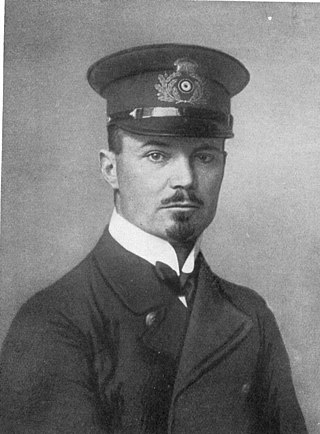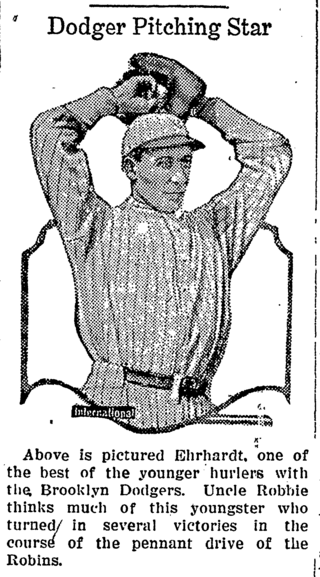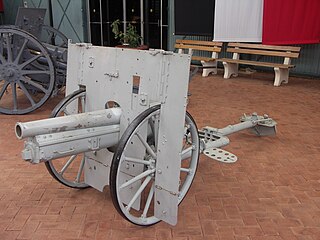An editor has nominated this article for deletion. You are welcome to participate in the deletion discussion , which will decide whether or not to retain it. |
Helmuth Ehrhardt was a German psychiatrist.
An editor has nominated this article for deletion. You are welcome to participate in the deletion discussion , which will decide whether or not to retain it. |
Helmuth Ehrhardt was a German psychiatrist.
Ehrhardt was a student of Werner Villinger. In a biography on Villinger, which Ehrhardt authored, he commended Villinger and Max de Crinis. Ehrhardt downplayed the seriousness of the crimes these men had committed with the Nazi T-4 Euthanasia Program. Ehrhardt later went on to serve on the executive board of the World Federation of Mental Health.

To Be or Not to Be is a 1942 American black comedy film, directed by Ernst Lubitsch, starring Carole Lombard and Jack Benny, and featuring Robert Stack, Felix Bressart, Lionel Atwill, Stanley Ridges and Sig Ruman. The plot concerns a troupe of actors in Nazi-occupied Warsaw who use their abilities at disguise and acting to fool the occupying troops. It was adapted by Lubitsch (uncredited) and Edwin Justus Mayer from the story by Melchior Lengyel. The film was released one month after actress Carole Lombard was killed in an airplane crash. In 1996, it was selected for preservation in the United States National Film Registry by the Library of Congress as being "culturally, historically, or aesthetically significant."

Ehrhardt is a town in Bamberg County, South Carolina, United States. As of the 2010 census, the town population was 545.

The Kapp Putsch, also known as the Kapp–Lüttwitz Putsch, was an attempted coup against the German national government in Berlin on 13 March 1920. Named after its leaders Wolfgang Kapp and Walther von Lüttwitz, its goal was to undo the German Revolution of 1918–1919, overthrow the Weimar Republic, and establish an autocratic government in its place. It was supported by parts of the Reichswehr, as well as nationalist and monarchist factions.

The Marinebrigade Ehrhardt, also known as the Ehrhardt Brigade, was a Freikorps unit of the early Weimar Republic. It was formed on 17 February 1919 as the Second Marine Brigade from members of the former Imperial German Navy under the leadership of Hermann Ehrhardt. The Brigade was used primarily in the suppression of the Bavarian Soviet Republic and the First Silesian Uprising, both in the first half of 1919. In March 1920, faced with its imminent disbanding by orders of the government in Berlin, the Marine Brigade was one of the main supporters of the Kapp Putsch that tried to overthrow the Weimar Republic. After the putsch failed and the Brigade was disbanded in May, many of the former members formed the secret Organisation Consul under Ehrhardt's leadership. Before it was banned in 1922, it carried out numerous assassinations and murders in a continuation of the attempts to overthrow the Republic.
Werner Villinger was a Nazi German psychiatrist, neurologist, eugenicist and the leading physician at the Bethel Institution. Villinger's specialities included juvenile delinquency, child guidance and group therapy. He was a Professor of Psychiatry at the Philipps University of Marburg and a leading member of the World Federation for Mental Health (WFMH).

Hermann Ehrhardt was a German naval officer in World War I who became an anti-republican and anti-Semitic German nationalist Freikorps leader during the Weimar Republic. As head of the Marine Brigade Ehrhardt, he was among the best-known Freikorps leaders in the immediate postwar years. The Brigade fought against the local soviet republics that arose during the German Revolution of 1918–1919 and later was among the key players in the anti-democratic Kapp Putsch of March 1920. After the Brigade's forced disbanding, Ehrhardt used the remnants of his unit to found the Organisation Consul, a secret group that committed numerous politically motivated assassinations. After it was banned in 1922, Ehrhardt formed other less successful groups such as the Bund Viking. Because of his opposition to Adolf Hitler, Ehrhardt was forced to flee Germany in 1934 and lived apolitically in Austria until his death in 1971.

Besigheim is a municipality in the district of Ludwigsburg in Baden-Württemberg in southern Germany.
Villinger is a German surname.

Annelie Ehrhardt, is a retired German hurdler. She won the gold medal in the inaugural 100 metre hurdles event at the 1972 Summer Olympics held in Munich, Germany, setting a new world record, and becoming the first East German Olympic Champion in this event. She also won a silver medal at the 1971 European Championships and a gold medal at the 1974 European Championships in a new championship record of 12.66 seconds.
The Ehrhardt-Szawe was a German automobile manufactured between 1924 and 1925. It was formed when Ehrhardt took over operations for the Szawe company of Berlin-Reinickendorf. The resulting car, a 2570cc 10/50 hp ohc six-cylinder, was designed without regard to cost; even its radiator was made of German silver.
Clyde Walter Ehrhardt was an American football center in the National Football League (NFL) for the Washington Redskins. He played college football at the University of Georgia and was selected in the 19th round of the 1944 NFL Draft. He served as the head football coach at Presbyterian College in 1962.
Karl Ehrhardt was one of the New York Mets' most visible fans and an icon at Shea Stadium from its opening in 1964 through 1981. Known as the "Sign Man", Ehrhardt held up 20-by-26-inch black cardboard signs with sayings in big white upper-cased paper characters that reflected the Mets' performance on the field, and echoed the fans' sentiments off of it. He usually brought a portfolio holding about sixty of his 1,200 signs to the stadium, each of them with color-coded file tabs for different situations. He was always positioned in the field-level box seats on the third base side, wearing a black derby with a royal-blue-and-orange band around the bottom of the crown and the primary Mets logo on the front. Ehrhardt wasn't afraid to criticize the team's front office, once holding up a sign that said "WELCOME TO GRANT'S TOMB", referring to the team's miserable play and M. Donald Grant, the team's chairman of the board.

Welton Claude Ehrhardt was a pitcher in Major League Baseball. He pitched from 1924 to 1929 with the Brooklyn Robins and Cincinnati Reds.

The Ehrhardt 7.5 cm Model 1904 mountain guns were originally issued to the Schutztruppe in German South-West Africa. The gun was also issued to the Portuguese colonial forces in Angola.

Ehrhardt is an old-style serif typeface released by the British branch of the Monotype Corporation in 1938. Ehrhardt is a modern adaptation of printing types of "stout Dutch character" from the Dutch Baroque tradition sold by the Ehrhardt foundry in Leipzig. These were cut by the Hungarian-Transylvanian pastor and punchcutter Miklós (Nicholas) Tótfalusi Kis while in Amsterdam in the period from 1680 to 1689.

The Whale House is a late Gothic bourgeois house in the old town of Freiburg im Breisgau, Baden-Württemberg, Germany and is under conservation. The building is currently used by the Sparkasse Freiburg-Nördlicher Breisgau bank. It is part of a complex which, in the past, was made up of 17 separate buildings. The front wall of the house opens onto the Franziskanerstraße, whilst the rear is on the Gauchstraße, near Kartoffelmarkt square.
Airwave Gliders was an Austrian aircraft manufacturer based on the Isle of Wight and later in Fulpmes. The company specialized in the design and manufacture of hang gliders and paragliders.

Milak, the Greenland Hunter is a 1928 German silent adventure film directed by Georg Asagaroff and Bernhard Villinger and starring Ruth Weyher, Nils Focksen and Lotte Lorring.
The 1984 Rhode Island Rams football team was an American football team that represented the University of Rhode Island in the Yankee Conference during the 1984 NCAA Division I-AA football season. In their ninth season under head coach Bob Griffin, the Rams compiled a 10–3 record, tied for the conference championship, and lost to Montana State in the NCAA Division I-AA Semifinals. The team was led on offense by quarterback Tom Ehrhardt, a junior transfer from C. W. Post.

Hermine Villinger was a German novelist and short-story writer, who also wrote using the pseudonym H. Willfried. She was known for her stories of village life, in the German literary genre known as Dorfgeschichte.